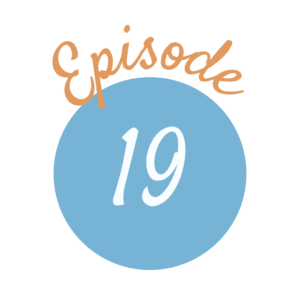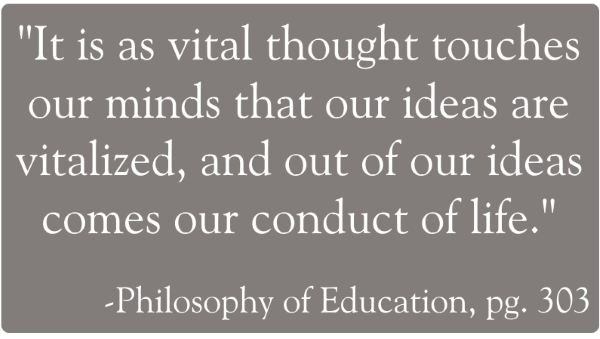
Our discussions on the subject of history resulted in an onslaught of questions. This podcast episode slowly and carefully addresses the most common and frequently asked history concerns, misunderstandings, and points of confusion we have received about Charlotte Mason’s approach to teaching this subject.
Listen Now:
“We introduce children as early as possible to the contemporary history of other countries as the study of English history alone is apt to lead to a certain insular and arrogant habit of mind.” (Vol. 6, p. 175)
“The flowers, it is true, are not new; but the children are; and it is the fault of their elders if every new flower they come upon is not to them a Picciola, a mystery of beauty to be watched from day to day with unspeakable awe and delight.” (Vol.1, p.53)
Colonial Living, Edwin Tunis
Frontier Living, Edwin Tunis
Our Island Story, H.E. Marshall
Winston Churchill and the Story of Two World Wars, Olivia Coolidge
Most Gracious Majesty: The Story of Queen Elizabeth II, Elinor Parker
The Battle of Britain, Quentin Reynolds
 The Story of Edith Cavell, Iris Vinton
The Story of Edith Cavell, Iris Vinton
(Contains affiliate links)
Check out Leah Boden’s Periscope, The Charlotte Mason Show











My 6 yo said, "Is this Jane Austen music?" when she heard your opening tune. 🙂 Heehee. I listen to the soundtrack more than I thought! 🙂
This was very helpful! I um…probably have WAY TOO many books going. 😉 I need to streamline it a bit. I've been doing a bit with splitting up my children into the two different forms and it hasn't been as hard as I thought…the younger two are enjoying being together and the older two are doing British History together now…my oldest LOVES the Dorothy Mills Ancient World you recommended, so thank you. I found it so interesting what you said about Mason's stuff actually being for nannies/homes/mothers FIRST and later adapted for schools. I did not know that!
Once again, thanks.
PS. I really enjoy Leah too, a breath of fresh air! Just like you three!
You are so welcome, and wonderful to hear that your children are enjoying the new arrangements. We actually hope to change that theme music as we recorded it on a phone and it sounds like the piano is out of tune.
-Liz
I'm halfway through my second listen! 🙂 It was very helpful and I'm so glad you're walking us through this!
Really, thank you so very much! These podcasts are so incredible!
You are most welcome, K.
Catie,
Wow, now that is pursuit of knowledge. I hope you are gleaning even more you can use the second time through.
-Liz
Do you keep a list of the titles in your Living Book Library, that you could share? I like how you put a link for the books you mentioned at the end of each episode, but I would love to have a "Living Book" book list that I can read over. I am mostly following Ambleside Online book suggestions which are great, but I think there is more out there that we will be missing out on. I hope this makes sense and it doesn't feel like I'm just taking advantage of all your years of hard work putting your library together.
Dear Ms. Swalberg,
Wouldn't it be absolutely lovely if there was one, all-inclusive living book list! Even Charlotte Mason refused to make lists for people. I can share the link to contact a woman whose database was our beginning point for collecting, if you like. She was the founder of the first living books library that I know of and her database of 20 thousand living books is something you can purchase. We cannot publish our library's collection because most of our record is within her database, which is copyrighted. You could browse at our website livingbookslibrary.com for our top picks in many areas, as well as old posts on fabulous living books you might make use of.
-Liz
Liz, Thank you, that is very helpful, and I totally understand. I would love the link to be able to purchase access to a database, I will also go on line to your website. In this age of unlimited books and information, it is so overwhelming to weed out the twaddle and trash that is out there filling our local libraries.
Thanks again, Allie
I have been on your living book library website all day! It's wonderful and has so much great info and book suggestions!
Ms. Swalberg,
I will send you the link privately if you send us an e-mail to contact@adelectableeducation.com. I am glad you had fun at Living Books Library today. You are right about the swamp of books, but the best way to know them is to begin reading and collecting the best and the less worthy books will stand out. Our podcast on Why Living Books (Episode 5), gives our best shot at how to know good books.
– Liz
Hey again! I am a CM newbie, and so I am a little confused on what CM considered a "unit study." It was my understand that she was not a fan of unit studies that tried to connect all the dots for the student. But, tying in composer study, art study, literature and poetry with the historical period sounds a lot like a unit study to me. What is the difference? I guess with CM, you aren't trying to connect the dots for them, you are just trying to give them a bigger picture of what that time period was like? Thanks again for your time and all you are doing to help!
Katie,
You are right, Miss Mason eschewed Unit Studies as such. However, she insisted that "The co-ordination of subjects is carefully regulated without any reference to the clash of ideas on the threshold or their combination into apperception masses; but solely with reference to the *natural and inevitable co-ordination of certain subjects.*" She didn't want an entire unit study built up around the Spanish Armada, she explains, with math lessons calculating the amount of cargo each ship must carry, etc–because that is an arbitrary connection, an artificial one constructed by the teacher. Instead, she tells us that literature, art, music, travels, poetry, architecture, citizenship, etc. are hardly distinct subjects, they are ancillary to history and flesh out those distant times and foreign places. In fact, they **naturally** go together with the study of history, and cause those events and days to "live in the mind." (See especially Volume 3, page 231)
And you are right, we, the teachers, are not making those connections for the children. They are natural and inevitable, and so make them themselves. Mason herself regularly coordinated the subjects of geography, art, music, poetry, literature, and historical fiction with the historical time period being studied, as we can see in her Programmes (available on the Charlotte Mason Digital Collection).
I hope that helps! Keep digging, there are many untold riches ahead.
-Emily
One thing that you discussed that I wanted to make sure I heard correctly… Say my child will be doing "tales" then the A&B years of rotation for form 1. After that would they jump into year C of Form 2, or just start back at year A? You mentioned "always moving forward" so I wanted to double check.
Carly,
You are on the right track. Your child would continue in the rotation moving from B to C then in the fourth year, or first year of form 2, as we have it labeled. Thanks for asking to clarify. Also, we hope to have a more well-defined time period chart up in the next month or so.
-Liz
The History of Everyday Things by Quinnel is still available here in england as a set from 1066 up to 1914 (and a fifth volume has been added to go up to 1964). Would you recommend these – or would a more modern book like DK eyewitness books be better for pictures of objects that they may want to draw in their book of centuries? Were these books used by CM just for the images – or would they have been reading them purposefully through?
Blessings
Jo in Uk